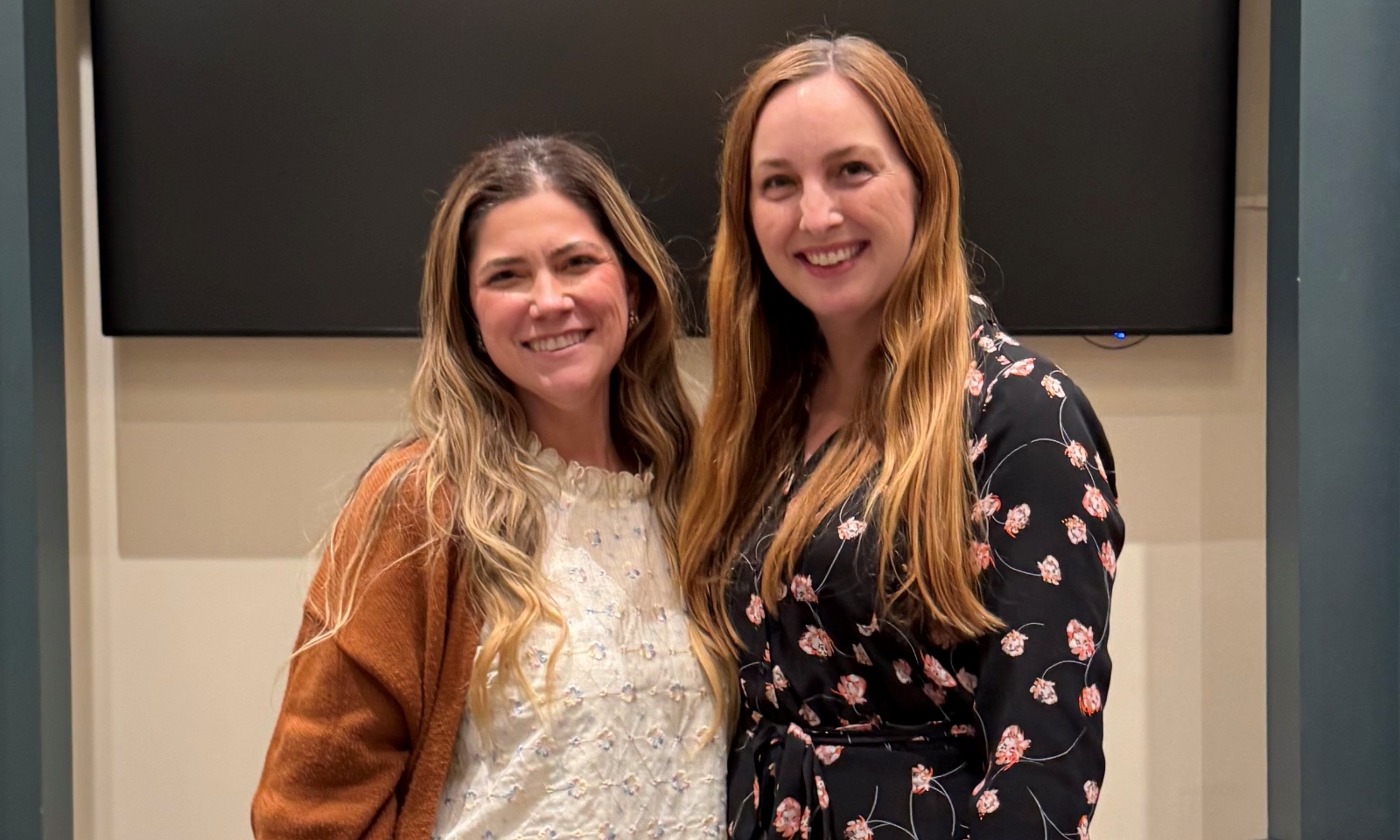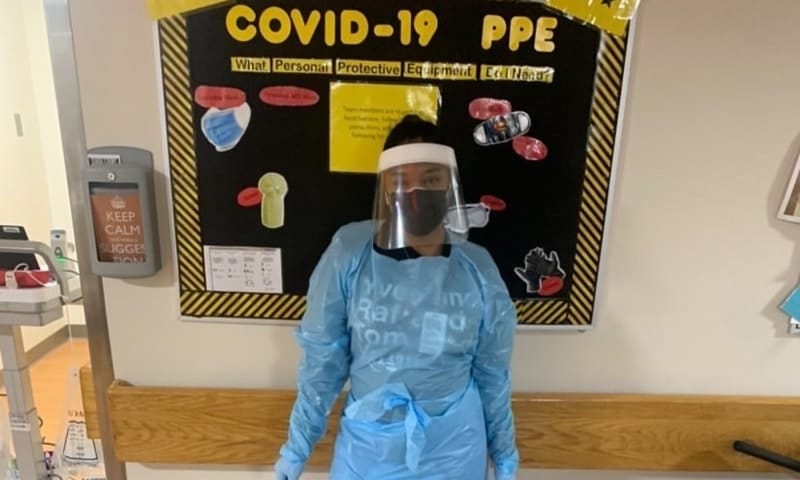From the front lines of clinical advocacy to the boardrooms shaping academic policy, LSU Health Sciences Center School of Nursing alumni are leading national conversations that define the future of health care. Their paths differ, but all share a foundation of service, rigorous education and a clear sense of purpose.
This spring, we highlight four such alumni whose voices help define what leadership looks like across the nursing profession and broader health care landscape:
- Jennifer Manning, DNS, ACNS-BC, CNE, FCNS; Associate Dean for Undergraduate Nursing Program; Program Director, Baccalaureate Articulation Program; Program Director, AGCNS Concentration; Associate Professor of Clinical Nursing
- Melissa Nunn, DNP, APRN, CPNP-PC/AC, CNE, NEA-BC, CNEcl; Assistant Dean for Student Services; Assistant Professor of Clinical Nursing; Coordinator BSN-DNP Pediatric Nurse Practitioner Programs – Primary Care and Acute Care Concentrations
- Ann Cary, PhD, MPH, RN, FNAP, FAAN; Associate Director of Community Partnerships, The Water School, Florida Gulf Coast University; Professor, Marieb College of Health and Human Services, Florida Gulf Coast University; Golisano Institute for Developmental Disabilities Fellow; Robert Wood Johnson Executive Nurse Fellow
- Norma Cuellar, PhD, RN, FTNSS, FAAN; Retired Professor, Capstone College of Nursing, University of Alabama; Editor, Journal of Transcultural Nursing
Where Leadership Begins

For each of these leaders, the foundation was laid at the School of Nursing. The school’s high expectations, deep focus on mentorship and early leadership opportunities created a launchpad that continues to propel them forward.
“My mentor at LSU encouraged us to join a national organization,” says Dr. Manning, who is now a faculty member and serves as immediate past president of the National Association of Clinical Nurse Specialists (NACNS). “She showed us how the experience would pay off in the long run. Even though I didn’t know what I would become in the future, it instilled in me that I could be more than just a member.”
Dr. Cuellar, former president of the National Association of Hispanic Nurses (NAHN), echoes that sentiment. “The faculty at LSU held many of the same beliefs I did. There was always another step. Always a way to grow,” she says.
Dr. Cary, who went on to chair the board of the American Association of Colleges of Nursing (AACN), credits LSU’s high standards with shaping her leadership mindset.
For Dr. Nunn, now a faculty member and Junior League of New Orleans (JLNO) board member, LSU’s message was clear from day one: “We were always told we could be nurse leaders, no matter the setting. That gave me the confidence to keep asking, ‘What’s next? What can I do better?’”
How Opportunity Blossoms Into Leadership
The path to leadership looked different for each alumna, but it all began with showing up and committing to giving back.

It was the recommendation of a family member that made Dr. Nunn join JLNO. She had been volunteering on international mission trips but wanted to make an impact closer to home. Receiving recognition from the organization for her contributions inspired her to continue growing and eventually opened the door to leadership.
Dr. Manning became a member of NACNS as a clinical nurse specialist who wanted to stay on top of industry information while becoming acclimated to her new role. Several years later, she volunteered for the research committee, serving as a member for several years and then chairing it. Her involvement deepened, eventually leading to her election to the board and, later, the presidency.
Dr. Cary’s mentor encouraged her to join AACN due to her leadership in administration. She began on the finance committee, then was elected twice to the board, where she contributed to national initiatives and chaired the membership committee. That role, she says, gave her valuable insight into member needs and a stronger voice at the board level. These experiences laid the groundwork for her eventual role as chair of the AACN board, where she helped guide the organization’s ongoing evolution as the national voice of academic nursing.
After noticing how few Hispanic nurses she encountered early in her career, Dr. Cuellar became involved in NAHN. She saw an opportunity to lead by example and inspire others to pursue nursing as a path to professional and community empowerment.
Driving Meaningful Change Through Leadership
As each of the alumni transitioned into more significant leadership roles, they found the ability to impact people through the work of their teams and organizations.

Dr. Cuellar used her leadership to drive change through avenues beyond NAHN. While at the University of Alabama, she helped spearhead BAMA-Latino Project (BAMA-L), a program to increase the diversity of registered nurses in the workforce. She also helped increase Hispanic membership in the American Academy of Nursing. During her tenure, the number of annual Hispanic inductees rose from one or two to five or six.
In 2020, during the height of the COVID-19 pandemic, Dr. Nunn saw half of JLNO’s leadership committee leave due to uncertainty, family problems and health issues. At this time, she was in charge of the Safe Sitter committee, which equips middle schoolers with lifesaving skills and safety training for babysitting and staying home alone. Despite major disruptions, Dr. Nunn helped adapt the program’s hands-on curriculum to continue covering CPR, choking rescue and childcare basics with these young students.
Dr. Manning navigated the evolving needs of the nursing profession as she stepped into leadership following the pandemic. She engaged extensively with health care organizations to address declining patient outcomes and the ongoing nursing shortage. She helped organizations understand how to hire, train and retain clinical nurse specialists. She also led the development of a toolkit for growing a CNS workforce and played a role in evaluating national legislation, helping to ensure policy changes supported and elevated the profession.
As part of an effort to advance academic nursing through structural innovation, Dr. Cary helped launch the AACN Foundation and reimagined the organization’s revisions of The Essentials, replacing siloed updates with a unified, competency-based framework. She also championed a leadership continuum to support faculty and deans growing into executive roles. By broadening participation across member institutions, she ensured that educators’ voices shape the future of academic nursing.
Mentorship and the Next Generation
All four leaders emphasized the importance of mentorship in their own journeys and offered advice for the next wave of School of Nursing leaders.

Dr. Manning says the key is being proactive about seeking mentorship. “Find someone doing what you want to do and ask them to mentor you. Formal or informal, it doesn’t matter. Most people are happy to share what they’ve learned.”
Growth depends on having a strong support system, according to Dr. Cuellar. “Be around people who support you,” she says. “So many underrepresented students face barriers at home or in their communities. You need people who lift you up and help you understand your value.”
Dr. Nunn believes in seeking out the work you’re meant to pursue. “One thing I hear a lot from other leaders is to ‘Just say yes.’ But I think you need to say ‘yes’ to the right things,” she says. “You can’t do it all. Find the work that speaks to you – where you feel like you’re making a difference. That’s where you’ll move forward and as you grow, you’ll find yourself in positions of opportunity.”
Persistence and putting your leadership in motion are at the core of Dr. Cary’s guidance. “If you’re not at the table, you’re on the menu,” she says. “Be present. Show up. Lean in with your voice and action. And remember, sometimes a ‘No’ just means someone needs more information before they can say ‘Yes.’”
Leaders for Life
Whether influencing national policy, transforming health systems or guiding future leaders, these alumni demonstrate how LSU’s leadership training extends well beyond graduation.
“Our education and experiences at the School of Nursing were always focused on helping us become the best nurses we could be,” Dr. Cary says. “The program was rigorous, held high expectations and was fair. That culture of excellence stayed with me and shaped how I approached leadership later in my career.”
“LSU gave me a natural propulsion to keep looking at what’s next, what I can do better, and how I can use my talents to help the organizations I serve.”
Melissa Nunn, DNP, APRN, CPNP-PC/AC, CNE, NEA-BC, CNEcl
Dr. Manning said her experience at the School of Nursing taught her to never underestimate herself. “No matter where you find yourself, some of the most important lessons in those early days will carry you,” she says. “Open your mind to being a student and always learning so you can continue to grow.”
Looking back at her education, Dr. Cuellar says you can persevere even after a slow start. “I struggled to make good grades until my last year of nursing school,” she says. ”You’re not going to be the best every time, but figure out what you can give back. We need your contributions to our profession.”
“I’m a proud graduate,” Dr. Nunn adds. “LSU gave me a natural propulsion to keep looking at what’s next, what I can do better and how I can use my talents to help the organizations I serve.”
Collectively, these alumni credit their LSU experiences with shaping not only their nursing careers but also the leadership mindsets that continue to guide their impact today.







